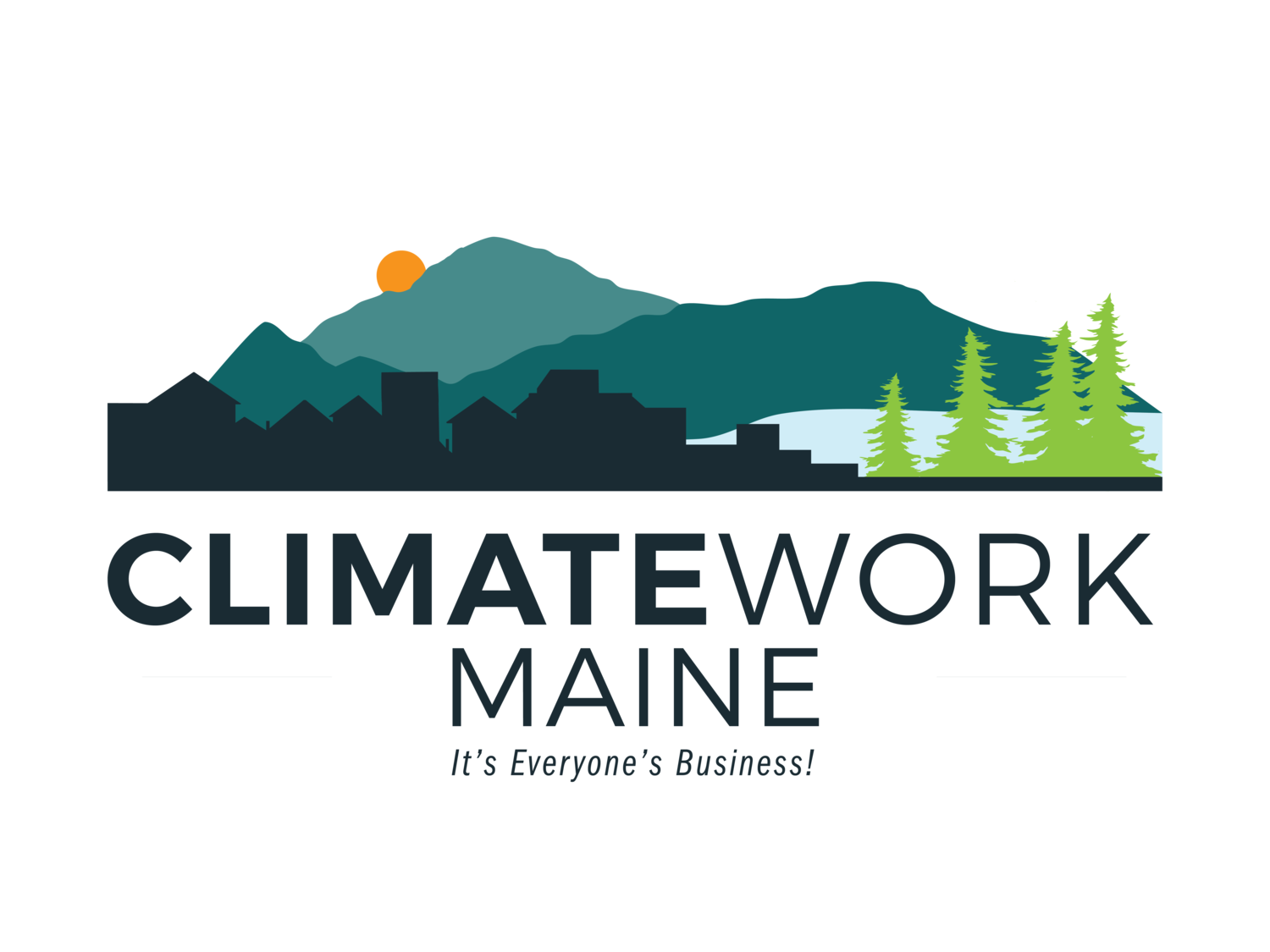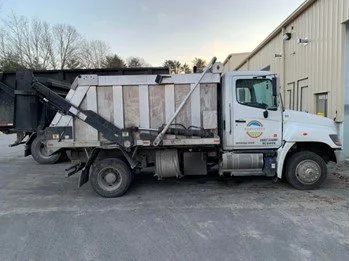CWM Member Highlight: Agri-Cycle
Turning Waste Into Worth with Agri-Cycle
Agri-Cycle is a food-waste-collection service based out of Portland, Maine, operating across the state, throughout New England and the Mid-Atlantic, and on emergency, nationwide. The company partners with businesses, institutions, and municipalities to divert food scraps and other organic waste streams, transforming them into renewable energy, compost, and animal feed. Founded in 2013, Agri-Cycle works closely with its sister facility, Exeter Agri-Energy—an anaerobic digester located in Exeter, Maine—as well as with other digesters across the country. ClimateWork Maine (CWM) spoke with Greg Williams, Director of Public Policy & Affairs at Agri-Cycle to learn more about Agri-Cycle’s interest and involvement in the world of sustainability.
At its core, Agri-Cycle is a sustainability-focused business due to its mission to recycle food waste and re-purpose it. However, their sustainability efforts go beyond their operations. Recently, Agri-Cycle has been engaged in food waste legislation efforts in Maine, including the most recent bill (LD 1065) that was signed into law in June 2025 that requires large food waste generators to donate surplus food and compost what cannot be eaten, preventing it from going into landfills or incinerators. Additionally, Agri-Cycle is an active member of the Maine Climate Council’s Materials Management Task Force, aiding in its ongoing work related to food loss prevention and diversion strategies around the state. Agri-Cycle’s involvement in both policy and practice demonstrates its deep commitment to building a more sustainable, circular food system for Maine and beyond. However, it’s more than that. In Agri-Cycle’s 12-plus years of operations, one of the challenges they’ve faced and come to welcome is increasing public awareness around the link between food waste and climate change. When food is wasted the resources to produce, process, and transport it, which release significant amounts of carbon dioxide into the atmosphere, are wasted as well. Additionally, when food decomposes in landfills it produces methane, another greenhouse gas, that is much more effective at trapping heat in the atmosphere than CO2. Agri-Cycle has also taken steps to address and debunk common misconceptions about the perceived costs, staffing demands, and logistical challenges associated with reducing and repurposing food waste. In fact, they argue that in many cases, diversion programs can lead to savings and a lighter workload for staff, along with a sense of pride in doing that right thing with their food waste. These challenges are ongoing for Agri-Cycle, but as a company, they are actively working to reshape perceptions. Their advocacy and policy efforts go beyond day-to-day operations, aiming to influence systemic change and promote more sustainable food waste practices.
When asked why Agri-Cycle joined ClimateWork Maine as a member organization, it came down to the connection and network that CWM provides. Being a Maine-based company, Agri-Cycle wanted to be more deeply engaged with the business community members on the topic of sustainability. Being part of CWM’s network and speaking with other members has given the team at Agri-Cycle the opportunity to learn about others’ experience in the sustainability realm and provides them a sense of how their own sustainability efforts align with those of other organizations. Williams emphasized that without a network, it can often feel like you're working in isolation, disconnected from others striving toward similar goals. Joining ClimateWork Maine has provided Agri-Cycle with a strong community of like-minded, mission-driven businesses—a critical foundation for driving meaningful progress, particularly in the current political climate, says Williams.
In the sustainability space, one of the most important elements is staying aware and informed about emerging sustainability trends and regulations that may affect your business's industry. Agri-Cycle typically does this through networks of colleagues and other stakeholders, like ClimateWork Maine, as well as relying on on-line sources such as industry and sustainability-related publications. They use these resources to help advance their sustainability goals and targets, as well as encourage more food waste diversion programs. Two specific resources that stand out in the industry are ReFED and BioCycle. ReFED is a useful resource with information and tools related to food waste and provides a network of businesses, non-profits, and institutions in Maine focused on the issue. The second resource is BioCycle magazine which is particularly useful for the organics industry. Williams recommends these resources to any businesses looking to join the food waste diversion industry.
Once a company begins its sustainability efforts, tracking progress is essential—not only to assess the effectiveness of current operations but also to identify opportunities for improvement. At Agri-Cycle, Williams notes they are fortunate to be a company entirely focused on preventing food loss and diverting food waste from landfills and incinerators. As a result, the more successful they are in their mission, the greater the environmental, social, and economic benefits for the broader community. The most direct way to measure their progress is by tracking the tonnage of food diverted and the number of partner programs Agri-Cycle sets up each year. These quantitative metrics allow the organization to compare numbers year over year and see the direct changes. One of the more qualitative measures they use to track their success is new relationships/partnerships that help build public awareness throughout the state and beyond. They’ve seen that their focus on sustainability and dedication to increasing public education on the topic of food waste has sparked interest, with more stakeholders now seeking data and insights on this critical climate issue.
In the future, Agri-Cycle anticipates continuing to be a leader in food waste diversion and processing through their partner facility, Exeter Agri-Energy. They also envision being engaged in strategies to prevent food loss to begin with and to further capture wasted food before it ends up in the state’s landfills. Additionally, they hope to see the momentum on food waste policies in New England and the Mid-Atlantic begin to ripple out into other areas of the country. Right now, only 10 states currently have mandates, mostly in the Northeast, and the vast majority do not have any type of policy regarding food loss prevention and diversion from landfills and incinerators. Agri-Cycle is going to work to keep pushing for more efforts at the state level, which in turn provides a secure environment for investors in food waste diversion infrastructure. For businesses wanting to enter this industry or the sustainability space in general, Agri-Cycle advises to find a need and focus on serving it well, joining a group, like ClimateWork Maine, to broaden your network, and take advantage of the expertise within that network to help yourself but also help others when you can. ClimateWork Maine is extremely grateful to have such an innovative and proactive organization as part of its membership and looks forward to continuing to collaborate with Agri-Cycle to drive meaningful climate action across Maine’s business community.
Agri-Cycle Website: https://www.agricycleenergy.com/



